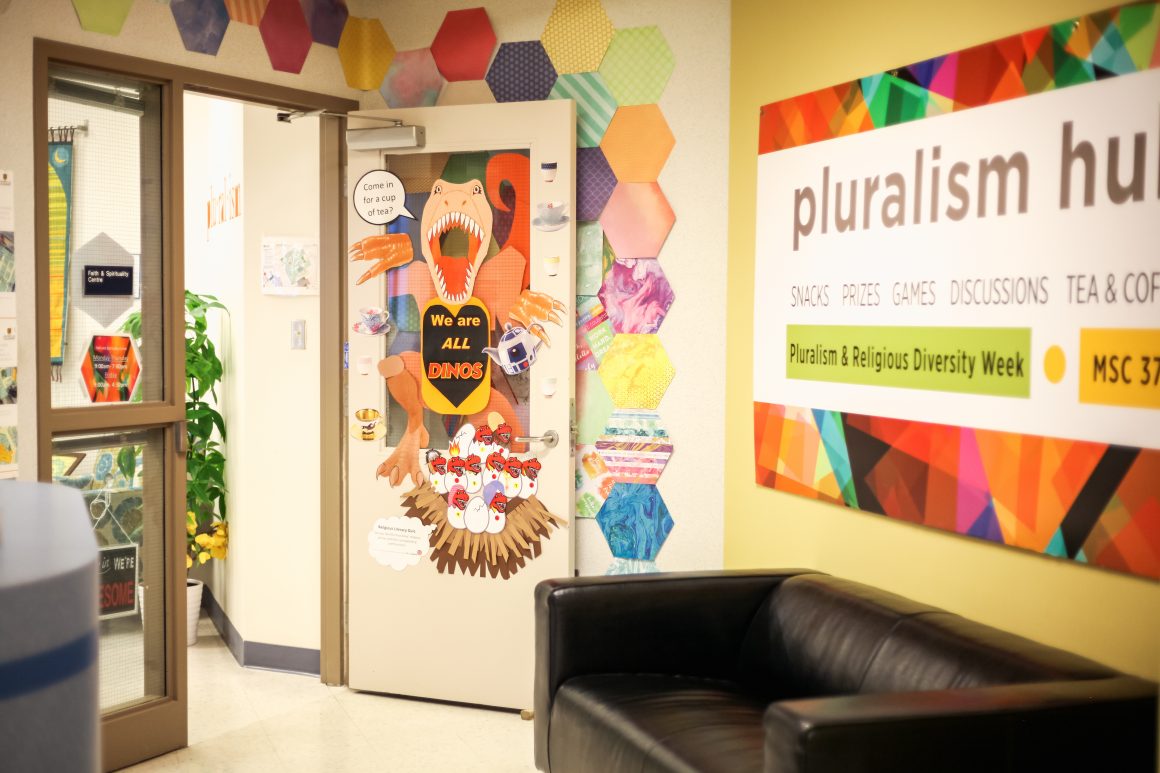
FSC offers intercultural competency quiz
By Kristy Koehler, October 23 2018 —
The University of Calgary’s Faith and Spirituality Centre is now offering The Intercultural Development Inventory (IDI), a quiz that assesses intercultural competence, defined by the FSC as “the capability to shift cultural perspective and appropriately adapt behaviour to cultural differences and commonalities.” This is done through 50 questions that begin with your ability to identify with your own cultural identity.
Faith and Spirituality Centre manager Adriana Tulissi, says that many people are unaware of the things that actually make up cultural identity.
“Growing up in Canada we are so rooted around ethnicity as being culture. ‘I’m born and raised here, so what does being Canadian mean to me?’ ” she said, adding that simple things like eating dinner together with your family are part of your cultural makeup.
“The IDI understands culture in a broader sense of culture, not only ethnicity but education, values, all of the things that make up who and what you are,” Tulissi said.
Test-takers are placed on a continuum, ranging from denial to adaptation. Those in the denial stage tend to stay within their own cultural group and mainly see superficial differences like ‘this food looks and smells different than mine.’
The next spot on the continuum, polarization, is more of an ‘us versus them’ mentality. People placed in this range may have an uncritical view of their own culture and an overly critical view of other cultures, or the other way around — an overly critical view of their own culture, and a romanticized view of other cultures, particularly if they belong to a dominant group,
Tulissi says that most people fall within the next stage — minimization.
“Minimization is where actually about 75 per cent of the population falls. This is a transition mindset between the monocultural mindset and the intercultural mindset,” she said. “Minimization is where people see a lot of cultural commonalities. They may make comments like ‘Deep down, we’re all just the same.’ For folks in minimization, they either lack the awareness or understanding to see the deeper cultural differences, so they might say that a bow, a handshake or a kiss on the cheek, they’re all just the same.”
People in the acceptance stage are aware of deeper cultural meanings but may not be aware of how to use the information and adapt their behaviour to suit different situations, whereas people in the final stage, adaptation, know how to do that. For example, they may operate differently in a professional setting with a German person than with a Japanese person, understanding that cultural differences play a huge role in how business deals are conducted.
What happens after you learn where you fall on the continuum?
“The thing that sold me on IDI is that it gives you a 21-page development plan. So they actually say, ‘These are all the things you can work on.’ That is, in my opinion, the magic of the IDI,” said Tulissi.
The development plan offers goal-setting, reflection opportunities. A debrief must be scheduled with a qualified administrator so that results can be interpreted.
The IDI also tests what happens when people are placed into stressful situations. People may revert to an earlier spot on the continuum when stressed. The development plan helps to determine what those stress triggers are and how to avoid them.
Research shows it takes 30–50 hours of intentional work, or three to nine months, to move one spot on the continuum, so engaging with the development plan is important in order to grow and progress.
The great thing about the IDI, said Tulissi, is that is that the goals and development plan are realistic.
“It meets [participants] where they’re at and pushes them just outside of their comfort zone so they can start growing,” she said.
The test is also entirely confidential.
“This isn’t about shaming, this is not going going on your record, it is purely a tool for students to learn and grow and develop,” Tulissi said.
Tests can be scheduled online at the Faith and Spirituality Centre’s website. There is a nominal charge of $11 USD, a fee that includes the test and a one-on-one debrief with a qualified administrator.
